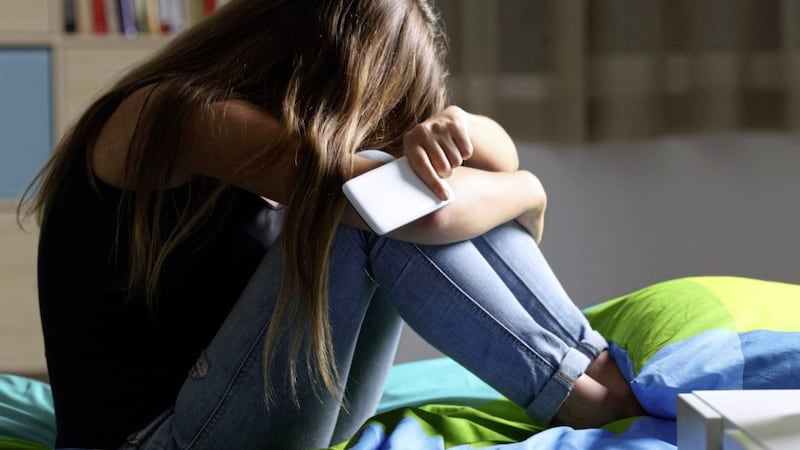I cannot remember a more tragic start to any year.
The beginning of a new decade has been ushered in with endless stories of loss and bereavement, some accidental, others deaths that should have been - and in any normal society would have been - entirely avoidable.
Picture after picture of beautiful smiling faces, ending with a death that in my childhood was rare and unspoken of.
We need to change how we talk about and how we deal with suicide, because what we’re doing now is simply not working, in fact I’d go as far as to say it’s making things worse.
When I first started in journalism over 20 years ago in west Belfast suicides were a still an unusual occurrence.
And I’m going to say something now that won’t be popular with everyone.
The campaign then was about ‘removing the stigma’ from suicide, we changed the language we used as journalists to describe such deaths. We no longer said ‘commit suicide’ as that implied guilt. Instead ‘took their own life’ became the approved phrase.
As I sit here writing this in 2020, I wonder why so much time, energy and resources were spent de-stigmatising and normalising what is a very abnormal way to die.
We are a post conflict society and that has had a dramatic effect on many people's mental health and then there is the generational impact of that trauma on family members born after the ceasefires.
By way of research for this I asked my youngest brother how many people he knew who had died by suicide, he said ‘around 30’. How in any society is that ok?
We went from A-Z with nothing in-between, instead of de-stigmatising and treating mental health problems, we concentrated on the end game.
This is a generation born with a phone in their hand. Bombarded with filtered images, pretend lives, awful surgically modified role models that will only ever make them feel inadequate.
And it’s 24/7, there is no day off, no relief from it.
The government spends money on campaigns teaching suicide awareness but how much is spent teaching resilience and coping mechanisms for stress, providing counselling and alternative therapies?
Relationships break up, being a teenager is difficult, I hated it and at times I struggled badly but don’t ever remember thinking not being alive was the answer.
There are some issues of modern life we can’t do anything about but others we most certainly can. Northern Ireland has the highest rate of suicide anywhere on these islands, for both men and women.
In the Republic suicides are currently at their lowest since 1989. Surely that is worthy of further exploration?
Dealing with causes, such as the easy availability of drugs and countering that in a genuine and effective way so young people don’t spend their weekends chasing soaring highs that can only ever be followed with crashing and mentally crushing lows.
By teaching them mindfulness, cognitive coping mechanisms and resilience, that no problem is insurmountable, that the lows as terrible as they are do pass.
And then there is the way suicide has been almost glamorised, the Facebook tribute pages, the ‘dancing with the angels’ commentary. Death is final, there is no party. Those who post broken hearts on social media move on and only those who loved the victim have to live with the consequences forever.
And what about the media? What of our role in this epidemic? The reporting of such personal tragedy comes with great responsibility, it should always be in the public interest and not just exploiting grief before moving on to the next.
There should be value in reporting and ultimately and ideally it should achieve something.
I was angry this week that all this senseless death and tragedy was happening seemingly unabated and then I got a message from one of my oldest friends.
Someone I have known since I was a teenager had taken her own life. She was beautiful inside and out with a 1000-watt smile and a family she adored and who adored her.
And so now as I write this, I’m both sad and angry.
This is not ok, none of this is ok, suicide is not a normal way to die and never should be portrayed as such.
It is long since past the time that those who control the health budgets were forced to address this epidemic properly and that we as a society reflect on what we all can do to make this a place where people love to live and not plan to die.
** Anyone experiencing distress or who knows someone in need of support can call Lifeline on 0808 808 8000 or the Samaritans on 116 123.








